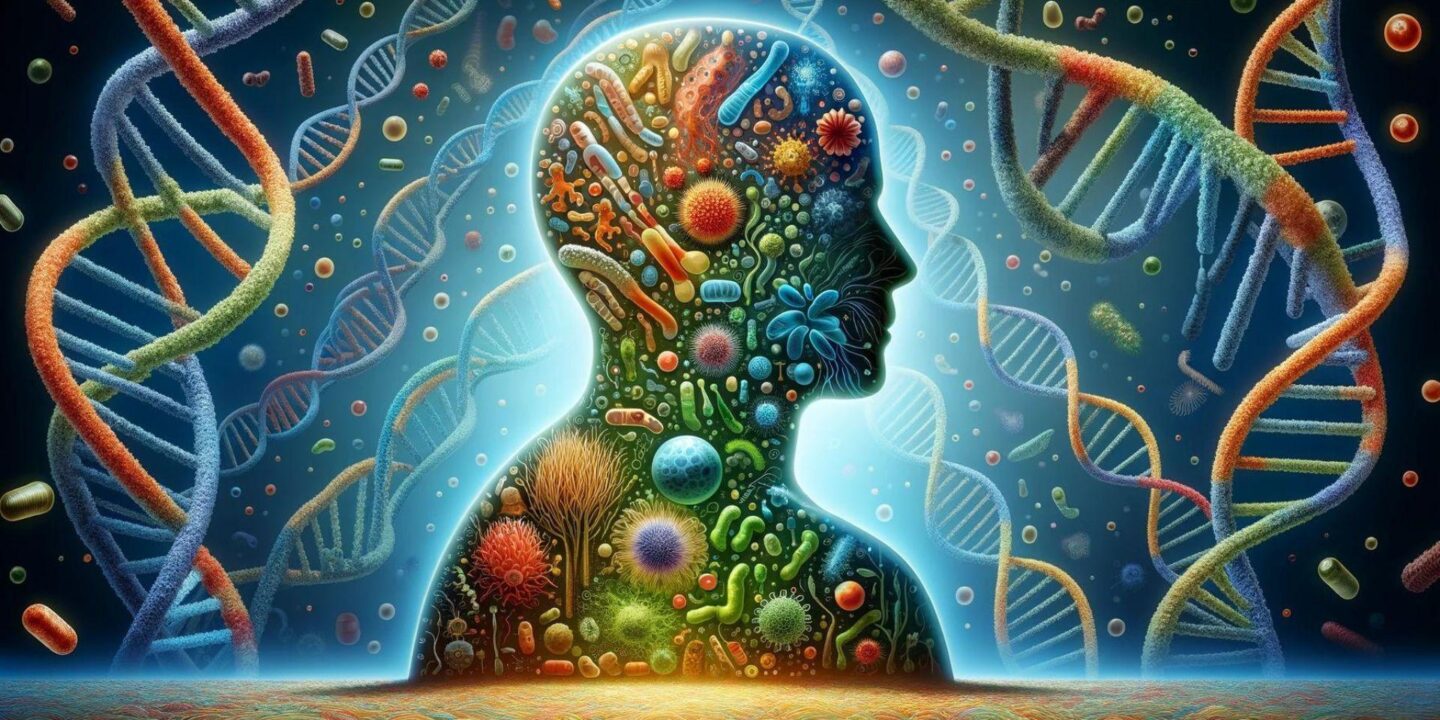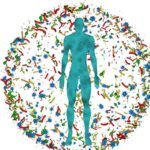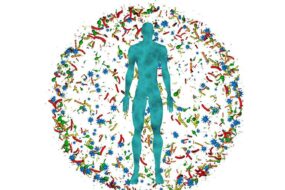
Imagine a world where the trillions of microorganisms living inside and on your body are not just harmless passengers, but active participants in your overall health and wellbeing. Sounds like science fiction, right? But what if I told you that the human microbiome – the complex ecosystem of bacteria, viruses, and fungi that call your body home – is actually a key player in determining your physical and mental health? The surprising truth is that these microscopic critters outnumber your human cells by a ratio of 1.3 to 1, and they’re not just along for the ride. As we explore the fascinating world of the human microbiome, you’ll discover how these tiny microbes are revolutionizing our understanding of health and fitness.
Let’s start with a remarkable story that highlights the astonishing impact of the human microbiome. Meet paul, a 62-year-old man who had been suffering from debilitating Clostridioides difficile, or C. diff, a bacterial infection that causes severe diarrhea and colitis. Despite numerous treatments, Paul’s condition continued to deteriorate, leaving him severely malnourished and tired. That was until he underwent a pioneering procedure known as fecal microbiota transplantation, or FMT.This innovative treatment involves transplanting fecal matter from a healthy donor into the gut of the infected patient, with the goal of restoring balance to the microbiome. The results were nothing short of miraculous: within days,Paul’s symptoms began to subside,and he made a full recovery. But what’s behind this remarkable conversion? The human microbiome is a highly complex and dynamic system, comprising trillions of microorganisms that live in and on our bodies. These microbes are not just passive inhabitants; they’re actively engaged in a multitude of processes that effect our health, from digesting nutrients and producing vitamins to regulating our immune systems and even influencing our mood and behavior.
The gut microbiome, in particular, plays a crucial role in maintaining the integrity of the gut barrier, preventing the passage of toxins and undigested food particles into the bloodstream. When the balance of the microbiome is disrupted, or dysbiosis occurs, it can have far-reaching consequences for our overall health. So, how do we maintain a healthy balance of microbes in our bodies? The answer lies in a combination of factors, including diet, lifestyle, and environment. A diet rich in fiber and polyphenols, for exmaple, can help promote the growth of beneficial microbes, while a diet high in processed foods and sugar can have the opposite effect. Similarly, regular exercise and adequate sleep can support a balanced microbiome, while chronic stress and antibiotics can disrupt it.
As we continue to learn more about the human microbiome, it becomes clear that maintaining a healthy balance of microbes is crucial for preventing a range of chronic diseases, from obesity and diabetes to mental health disorders.One of the most significant breakthroughs in our understanding of the human microbiome came with the advent of advanced genetic sequencing technologies. By analyzing the DNA of microbes living in and on our bodies, scientists have been able to identify the diverse range of species present and how they interact with each other and their human hosts. This research has revealed that the human microbiome is not just a collection of individual microbes, but a complex ecosystem that is shaped by a multitude of factors, including genetics, environment, and lifestyle.
As our understanding of the human microbiome continues to evolve, we’re seeing a new generation of treatments and therapies emerge. Along with FMT, researchers are exploring the potential of prebiotics and probiotics, live microorganisms that can help restore balance to the microbiome. We’re also seeing the progress of novel therapies that target specific microbial pathways, such as those involved in the production of neurotransmitters and hormones. These advances hold great promise for the treatment of a range of diseases,from inflammatory bowel disease and irritable bowel syndrome to anxiety and depression. The impact of the human microbiome extends far beyond the realm of medicine,too. As we learn more about the intricate relationships between microbes and their human hosts, we’re beginning to appreciate the critical role that the microbiome plays in shaping our physical performance and athletic potential.
Here are some surprising facts about the human microbiome:
the human microbiome is made up of trillions of microorganisms, with estimates suggesting that there are approximately 39 trillion microorganisms living in and on the human body.
The gut microbiome is home to over 1,000 different species of bacteria, with some estimates suggesting that there might potentially be as many as 2,000 different species present.
The human microbiome plays a critical role in maintaining the integrity of the gut barrier, preventing the passage of toxins and undigested food particles into the bloodstream.
Imbalances in the microbiome have been linked to a range of chronic diseases, including obesity, diabetes, and mental health disorders.
The human microbiome is a complex system that is influenced by a range of factors,including diet,lifestyle,and environment. By understanding the intricate relationships between microbes and their human hosts, we’re unlocking new insights into the prevention and treatment of disease, and revealing new possibilities for optimizing physical performance and athletic potential. As we look to the future, it’s clear that the human microbiome will continue to be a major area of research and discovery, with the global microbiome market projected to reach $1.3 billion by 2027.
In recent years, there has been a growing interest in the role of the human microbiome in health and disease. This has lead to the development of a range of new treatments and therapies, including FMT, prebiotics, and probiotics.as our understanding of the human microbiome continues to evolve, we’re likely to see the development of even more innovative treatments and therapies, and a growing recognition of the critical role that the microbiome plays in maintaining our overall health and wellbeing.
#HealthFacts #fitnessjourney #WellnessStory #MedicalMystery #HumanMicrobiome #GutHealth #MicrobiomeResearch #ScienceOfFitness #WellnessWednesday #HealthTransformation










